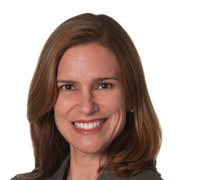After graduating from college, my sister and I agreed to try to make it in NYC. I thought I would return to school in a year, but I joined a firm that challenged me and didn’t look back. I realized going to school wasn’t the only way to feed my voracious appetite for learning; I could also satisfy that on the job, working with intelligent people who pushed me to stretch and grow.
When I took my first job, my uncle, a banking executive, advised: “Keep your mouth closed and learn.” After I earned my stripes, he explained, people would invest in me. As someone who’d always enjoyed taking the lead in conversations, that surprised me. But my uncle convinced me that on-the-job learning was different than school. Actually, it was even more exciting, because I never knew where a particular project or interaction would lead—and what “windmill” might be around the corner.
I’ve been blessed with incredible mentors. One pointed out that women focus on competence. Men are more likely to network and understand the politics of any situation. Furthermore, men ask for what they want in terms of their careers and salaries, while women believe their good work will automatically be rewarded.
Too many young women who were confident and successful in school become hesitant on the job. They think their work should speak for itself. Unfortunately, companies don’t behave like academia: An outstanding paper will garner an A, but a superbly executed project alone probably won’t result in a promotion or a raise. Women must learn to advocate for themselves—and build strong relationships with others who will advocate for them.
Women leaders are critical to organizations’ success. Booz Allen has developed leadership courses to help women build their presence, understand expectations, and evaluate cultural, political, and societal norms. Most importantly, these women recognize—just as my uncle taught me—when to learn, and when to lead.
To close the disparity between women and men in executive ranks, colleges and universities would do well to follow Booz Allen’s lead and encourage female students to take leadership courses tailored specifically for them. As women, we have come too far to believe we need to act like men in order to be successful. We bring something unique to the table, and we should seize the leadership opportunities available to us.







